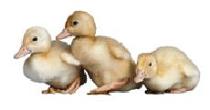It's a New Day in Public Health.
The Florida Department of Health works to protect, promote, and improve the health of all people in Florida through integrated state, county, and community efforts.
Novel Influenza Viruses
North American Avian Influenza
- FWC Avian Influenza: myfwc.com/research/wildlife/health/avian/influenza/
- CDC Avian Influenza:
cdc.gov/flu/avianflu/prevention.htm#Protective-actions-wild-birds - CDC: Avian Influenza Information for Specific Groups: cdc.gov/flu/avianflu/groups.htm
- USDA Current Avian Influenza Information: aphis.usda.gov/aphis/ourfocus/animalhealth/animal-disease-information/avian/avian-influenza/defend-the-flock-hpai
- USDA Hunter Recommendations: aphis.usda.gov/publications/animal_health/2015/fsc_hpai_hunters.pdf
- FDACS Avian Influenza Information: fdacs.gov/Consumer-Resources/Animals/Animal-Diseases/Avian-Influenza
- FWC Report Dead Birds: app.myfwc.com/FWRI/AvianMortality/
Swine Influenza, Pigs, and People

Pigs, like people, can be infected by influenza viruses. These are called swine influenza viruses while influenza viruses found regularly in people are referred to as seasonal influenza or flu viruses. There are multiple strains of swine influenza viruses present in the U.S. in both domestic and wild pigs, just as there are multiple strains of seasonal flu viruses in people. Generally the influenza viruses found in pigs are passed between pigs, and those in people are spread to other people. However, these slightly different types of viruses can occasionally spread from pigs to people, or from people to pigs. When this happens there is a rare chance that a new, sometimes more dangerous virus for people or pigs might develop. Both swine and human influenza viruses are most common in winter and cause similar symptoms of fever, sore throat, coughing, nasal discharge, sneezing and difficulty breathing. Both people and pigs can spread influenza viruses by coughing and sneezing. Infected pigs and people are both most contagious to others when they are most ill; therefore it is important to avoid close contact (being within 6 ft) of ill pigs and ill people. To prevent infection with either human or swine influenza viruses:
People who are ill should avoid close contact with swine and people.
Avoid close contact with people or swine with signs of respiratory disease (fever, coughing, nasal discharge, sneezing, difficulty breathing).
Practice good respiratory etiquette by covering your cough (and sneeze).
Wash hands frequently with soap and water, especially before touching eyes, nose, or mouth.
Stay up to date with seasonal influenza vaccinations.
Contact your physician if you develop symptoms of influenza.
*Note: Under Florida law, e-mail addresses are public records. If you do not want your e-mail address released in response to a public records request, do not send electronic mail to this entity. Instead, contact this office by phone or in writing.
Report swine with signs of respiratory disease to state and federal animal health officials: Florida Department of Agriculture and Consumer Services (FDACS) State Veterinarian's office: 850-410-0900; USDA office 352-313-3060; 24 hour toll-free number 877-815-0034 or via e-mail rad@doacs.state.fl.us.
Resources
The H1N1 influenza virus of swine origin currently in the news is suspected to be a new virus, and is being spread person to person rather than from pigs to people.
FDACS and FDOH Novel Influenza FAQ's
CDC Information for People Who Raise or Work with Pigs
Current information on the novel H1N1 (formerly Swine Flu) event from CDC can be found at: CDC - H1N1 Flu
Buenos hábitos de salud para la prevención Hoja informativa (CDC Español/Spanish H1N1/Swine Influenza Fact Sheet): Influenza - Espanol
Español/Spanish novel H5N1Influenza porcina
CDC Interim Guidance for Workers who are Employed at Commercial Settings:
Florida Department of Health Veterinary Influenza Information (PDF)
Influenza - Pigs, People and Public Health
For questions regarding swine influenza surveillance programs for pig farmers in pigs in FL, call FDACS Animal Industry 850-410-0900, and for general information visit their webpage at: Florida Department of Agriculture and Consumer Services - Division of Animal Industry
Feral or Free-Ranging Swine and Hunters
Practice good sanitation when handling feral swine or raw feral swine meat, they can carry a number of infectious organisms including bacteria and parasites such as Brucella and Trichinella. To protect against these and other agents (including viruses):
Avoid eating, drinking or using tobacco when field-dressing or handling carcasses.
Use latex or rubber gloves when handling the carcass or raw meat.
Avoid direct contact with blood, reproductive organs and fecal matter. Wearing long sleeves, eye protection and covering any scratches, open wounds or lesions will help provide protection.
Clean and disinfect knives, cleaning area, clothing and any other exposed surfaces when finished.
Wash hands frequently with soap and water.
Cook meat from these animals to 160º F or until juices run clear.
Other Links
United States Department of Agriculture Be Food Safe Resources - Brochure (PDF 661 KB) En Español (PDF 661 KB) Activity Book (PDF 3.9 MB)
Florida Fish and Wildlife Conservation Commission- Includes information for hunters




Connect with DOH